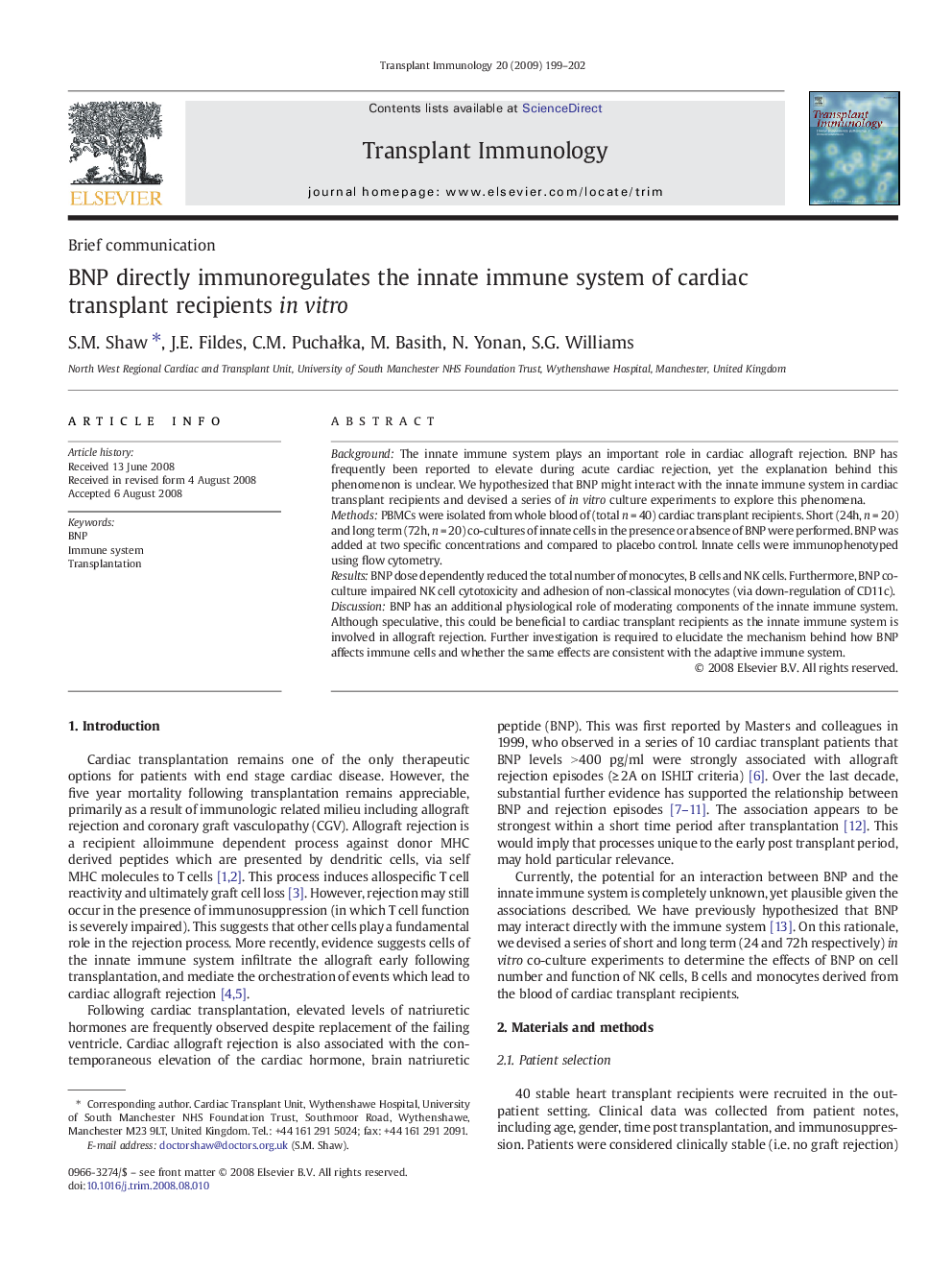| Article ID | Journal | Published Year | Pages | File Type |
|---|---|---|---|---|
| 3392456 | Transplant Immunology | 2009 | 4 Pages |
BackgroundThe innate immune system plays an important role in cardiac allograft rejection. BNP has frequently been reported to elevate during acute cardiac rejection, yet the explanation behind this phenomenon is unclear. We hypothesized that BNP might interact with the innate immune system in cardiac transplant recipients and devised a series of in vitro culture experiments to explore this phenomena.MethodsPBMCs were isolated from whole blood of (total n = 40) cardiac transplant recipients. Short (24h, n = 20) and long term (72h, n = 20) co-cultures of innate cells in the presence or absence of BNP were performed. BNP was added at two specific concentrations and compared to placebo control. Innate cells were immunophenotyped using flow cytometry.ResultsBNP dose dependently reduced the total number of monocytes, B cells and NK cells. Furthermore, BNP co-culture impaired NK cell cytotoxicity and adhesion of non-classical monocytes (via down-regulation of CD11c).DiscussionBNP has an additional physiological role of moderating components of the innate immune system. Although speculative, this could be beneficial to cardiac transplant recipients as the innate immune system is involved in allograft rejection. Further investigation is required to elucidate the mechanism behind how BNP affects immune cells and whether the same effects are consistent with the adaptive immune system.
